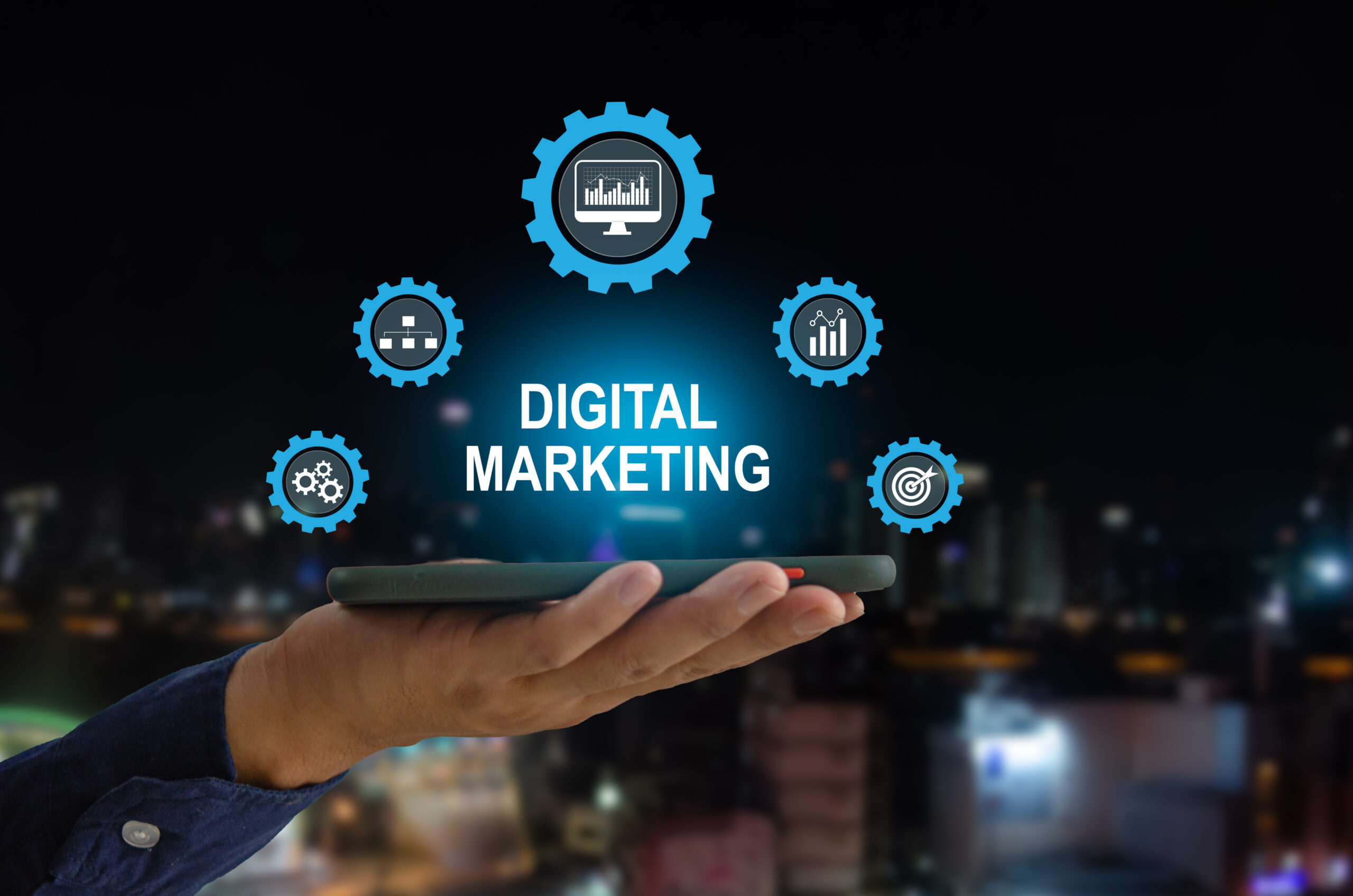In today’s fast-paced and highly competitive business landscape, digital marketing has become an indispensable tool for companies seeking to establish a strong online presence, engage with their target audience, and drive business growth. With the ever-evolving digital landscape, staying ahead of the curve and mastering the art of digital marketing is crucial for businesses of all sizes. In this comprehensive guide, we’ll explore the key strategies and tactics for succeeding in the dynamic world of digital marketing.
Understanding Digital Marketing
Digital marketing encompasses a wide range of online tactics and channels aimed at reaching and engaging target audiences. From search engine optimization (SEO) and content marketing to social media advertising and email campaigns, digital marketing offers businesses numerous avenues to connect with consumers and drive conversions. By understanding the various components of digital marketing, businesses can develop a comprehensive strategy tailored to their specific goals and objectives.
Setting Clear Goals and Objectives
Before diving into digital marketing initiatives, it’s essential to establish clear goals and objectives. Whether the objective is to increase website traffic, generate leads, boost sales, or enhance brand awareness, having a clear understanding of what you want to achieve will guide your digital marketing efforts and help measure success. SMART goals (Specific, Measurable, Achievable, Relevant, Time-bound) provide a framework for setting objectives that are both realistic and attainable.
Building a Strong Online Presence
A compelling online presence is essential for attracting and engaging potential customers. This begins with a well-designed website that not only looks visually appealing but also provides a seamless user experience. Mobile optimization is also crucial, as more users are accessing the internet via smartphones and tablets. Additionally, businesses should leverage social media platforms to interact with their audience, share valuable content, and cultivate a sense of community around their brand.
Content Marketing
Content is king in the digital marketing world. High-quality, relevant content not only attracts and engages users but also helps improve search engine rankings. By creating informative blog posts, videos, infographics, and other types of content, businesses can position themselves as industry experts and provide value to their target audience. Content marketing also plays a vital role in lead generation and nurturing, as well as building brand credibility and trust.
Search Engine Optimization (SEO)
SEO is the process of optimizing a website to rank higher in search engine results pages (SERPs) for relevant keywords and phrases. By optimizing on-page elements such as meta tags, headings, and content, as well as off-page factors like backlinks and social signals, businesses can improve their visibility in search engines and drive organic traffic to their site. Staying abreast of the latest SEO trends and best practices is essential for maintaining a competitive edge in the digital marketplace.
Pay-Per-Click (PPC) Advertising
PPC advertising allows businesses to bid on keywords and display ads in search engine results and on various websites and platforms. Unlike organic search traffic, which can take time to build, PPC offers instant visibility and can be highly targeted based on factors such as demographics, interests, and behavior. By carefully managing PPC campaigns and monitoring performance metrics, businesses can maximize their return on investment (ROI) and achieve their advertising goals.
Email Marketing
Despite the rise of social media and other digital channels, email marketing remains one of the most effective ways to reach and engage customers. Whether it’s sending promotional offers, newsletters, or personalized recommendations, email allows businesses to communicate directly with their audience and nurture relationships over time. By segmenting email lists, crafting compelling subject lines, and providing valuable content, businesses can increase open and click-through rates and drive conversions.
Analytics and Measurement
Data-driven decision-making is essential for optimizing digital marketing efforts and maximizing ROI. By leveraging web analytics tools such as Google Analytics, businesses can track key metrics such as website traffic, conversion rates, and customer engagement. Analyzing this data provides valuable insights into the effectiveness of marketing campaigns, allowing businesses to identify areas for improvement and make informed decisions about resource allocation and strategy refinement.
Continuous Learning and Adaptation
The digital marketing landscape is constantly evolving, with new technologies, trends, and consumer behaviors shaping the way businesses connect with their audience. To stay ahead of the curve, it’s essential for marketers to embrace a culture of continuous learning and adaptation. This includes staying informed about industry developments, experimenting with new tactics and strategies, and being willing to adjust course based on feedback and results.
Conclusion
Mastering the art of digital marketing requires a comprehensive understanding of the various tactics and channels available, as well as a strategic approach tailored to the unique needs and objectives of your business. By setting clear goals, building a strong online presence, creating valuable content, and leveraging data-driven insights, businesses can succeed in the ever-changing digital landscape and drive sustainable growth in the digital age.

